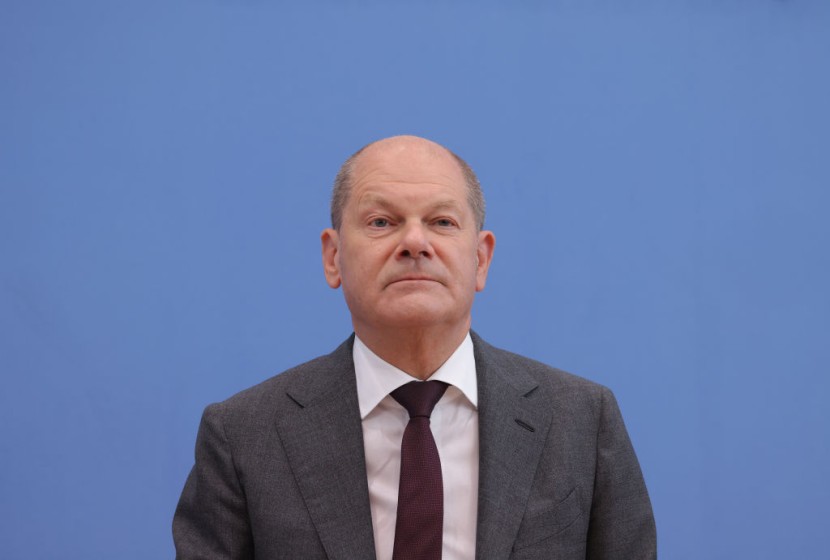
Wednesday marked the debut of Germany's first comprehensive national security strategy, to address Germany's priorities and aspirations in a Europe transformed by Russia's invasion of Ukraine.
Russia is the greatest threat to peace and security in the Euro-Atlantic region for the foreseeable future, according to a 76-page strategy document.
Germany Highlights Growing Threats
The government of Chancellor Olaf Scholz agreed to develop the strategy when it assumed office in December 2021, despite Russia's invasion of Ukraine increasing the plan's significance and highlighting the possibility that the country was becoming vulnerable to new military and geopolitical threats.
This strategy is based on three pillars: increasing defense expenditure, including reaching the NATO objective of 2% of the gross domestic product commencing the following year, Germany and its allies' ability to reduce their dependence on adversaries, and sustainability.
Per Washington Examiner, Scholz characterized the strategy as a "massive transformation in the way we approach security issues" and added, "The national security strategy is not a terminus, but a starting point."
The strategy was part of an effort to resolve what Germany perceives to be increasing military, economic, and social threats to the nation. The largest opposition party in Germany criticized the government's position as "weak."
Since Russia attacked Ukraine nearly 16 months ago, Chancellor Olaf Scholz stated that the new strategy that his three-party governing coalition pledged to develop when it assumed office at the end of 2021 had taken on greater significance.
The conflict in Ukraine has increased German concerns about the readiness of its own armed forces, prompting Scholz to declare a "turning point" in military expenditure.
Russia's invasion of Ukraine in February 2022 demonstrated "what many of our Eastern European neighbors have warned us about - that Europe is vulnerable," German Foreign Affairs Minister Annalena Baerbock told reporters at a news conference in Berlin, where Scholz and other top officials were also present.
According to Defense News, a 76-page document delineating the strategy states that "Russia is the greatest threat to peace and security in the Euro-Atlantic region for the foreseeable future."
It also warns that certain nations are "attempting to reshape the existing international order in accordance with their view of systematic rivalry," an indirect reference to the threats posed by disinformation, espionage, and economic pressure from significant powers such as China.
The document makes multiple references to climate-related security concerns. These include an increased risk of global famine, disease, and conflict, as well as extreme weather events and harm to Germany's critical infrastructure.
It outlines Berlin's general approach but lacks specifics, such as the strategy's potential foreign policy repercussions. Officials intend to develop additional details at a later date.
Germany Urges to Deal with Issues About China
The German government is also formulating a China-specific strategy. Scholz declined to disclose the publication date, as per NY Times. He told reporters, "We'll be ready when we're ready, but shortly."
The document was published on Wednesday, one week prior to the German government's high-level discussions with senior Chinese officials in Berlin, which are anticipated to cover a variety of sensitive issues. Due to China's significance as a market for German exports and a source of crucial commodities, Germany has traditionally refrained from antagonizing Beijing.
Nonetheless, the document highlighted Berlin's view that China is "a partner, competitor, and systemic rival," noting that "elements of rivalry and competition have increased in recent years; at the same time, China remains a partner without which many of the world's most pressing problems cannot be resolved."
In response to a question about the practical implications of the new strategy, Baerbock stated that the government will examine the areas in which Germany is most vulnerable due to its dependence on China. She stated that these include basic materials and components for the energy, telecommunications, and medical industries, for which Germany is actively attempting to diversify its sources.
The government stated that it will also develop a strategy to increase Germany's ability to counter hybrid threats, which will involve enhancing the intelligence services' analytical capabilities.
However, the notion of establishing a National Security Council similar to those in the United States and the United Kingdom was abandoned. In addition, the government resisted demands for Germany's military expenditures to exceed the NATO-wide target of 2% of gross domestic product.
Related Article : US, Iran Silently Revive Talks About American Prisoners, Nuclear Program
© 2025 HNGN, All rights reserved. Do not reproduce without permission.








